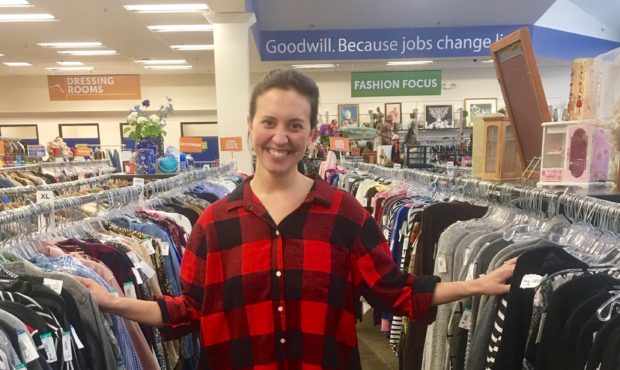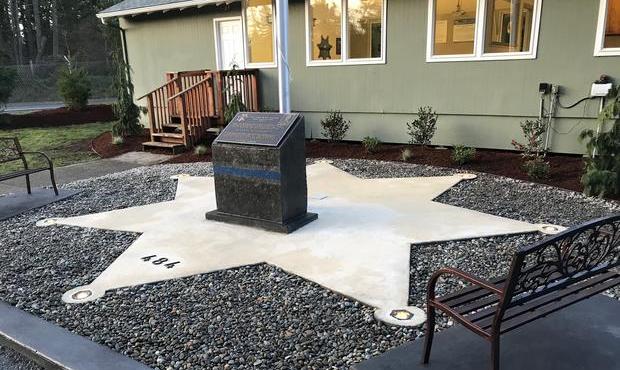Seattle doctors hopeful new treatment can cure childhood cancer
Jan 13, 2015, 1:29 PM | Updated: 3:26 pm
Meagan Mulinex was 17-years-old the first time she developed Acute Lymphoblastic Leukemia (ALL), the most common type of childhood cancer.
She had a pain in her abdomen doctors thought might be a broken or cracked rib. But the X-Rays came back negative. They scheduled more doctor visits and did more testing. It took a month before Meagan was able to get a definitive diagnosis. In the meantime, her pain spread down her back to her legs.
“I kind of wanted an answer. It didn’t really matter what it was. I wanted just to be able to fight it,” Meagan recalls.
The Everett teen was able to maintain her positive attitude through six months of chemotherapy.
“It almost feels like your soul’s been ripped from you,” says Meagan. “You don’t even have the will to move around.”
After she completed treatment, her blood tests came back cancer-free. Still, she had two years of maintenance therapy to endure, which included several types of steroids.
“Steroids I think, out of all the therapies you do, are probably the worst. They turned me into a different person. I can take any of the chemo, but there’s a certain type of steroid that I just decided not to do,” says Meagan.
She stayed cancer-free for more than two years. Meagan was able to graduate high school with her class and started community college with the goal of becoming a nurse.
Then, she got the call. There was something wrong with her blood tests. She would need more intensive chemotherapy that would require in-patient treatment at Seattle Children’s Hospital and a stem cell transplant.
“I still felt positive. I never felt like it was so overwhelming, and I never felt like I was going to die,” Meagan says.
This time the treatment was so hard on her system she was in a coma-like state for much of it. Lying in a hospital bed, Meagan was unaware of what went on around her.
She completed treatment and was told she was healthy. Then, for a third time, the cancer came back.
Meagan contemplated the torture of more chemo and steroids, but then found out she was a candidate for a new immunotherapy treatment just beginning trials at Seattle Children’s Hospital under the guidance of Dr. Rebecca Gardner.
“The idea of using your immune system as cancer therapy was just a very elegant idea. It’s a very targeted therapy,” says Dr. Gardner. “It says, ‘How can we find the cancer cells in your body, get rid of them, but leave the rest of your body unharmed?’ ”
Dr. Gardner’s team removed Meagan’s T-Cells, which are responsible for identifying and fighting illnesses. They reprogrammed those cells and put them back into Meagan’s body.
The whole process took less than two months, and it was a huge success. Not only were the modified T-Cells able to kill the leukemia cells doctors had identified, but they found and destroyed sleeper cells doctors didn’t even know existed. The cancer cells had been hiding in Meagan’s brain.
Normal side effects from the immunotherapy treatment are relatively mild, including a fever. Because of the large number of cancer cells in Meagan’s body, her reaction was extreme. She had seizures and had to be hospitalized.
But, unlike chemotherapy, it only took a few weeks for the side effects to subside and Meagan won’t have to undergo any type of maintenance therapy. She will only require regular blood tests to make sure the cancer never comes back.
“It’s just such a blessing,” says Megan. “I would do it over and over again, not that I’ll have to because I’m cancer free now!”
Of the 17 patients who are part of the phase-one testing at Seattle Children’s Hospital, 13 have completed treatment and been evaluated. Eleven of them are completely cancer free.
Dr. Gardner says they will be entering phase-two trials soon, using the therapy on more ALL patients. There are also parallel research studies being done to fine tune the immunotherapy approach and see if it can work on other types of cancer.
“The landscape of what cancer treatment will look like 5-to-10 years from now is much different than it is today,” says Dr. Gardner. “I hope at some point we’ll be able to say we can cure it.”
Learn more about the immunotherapy treatment here.












